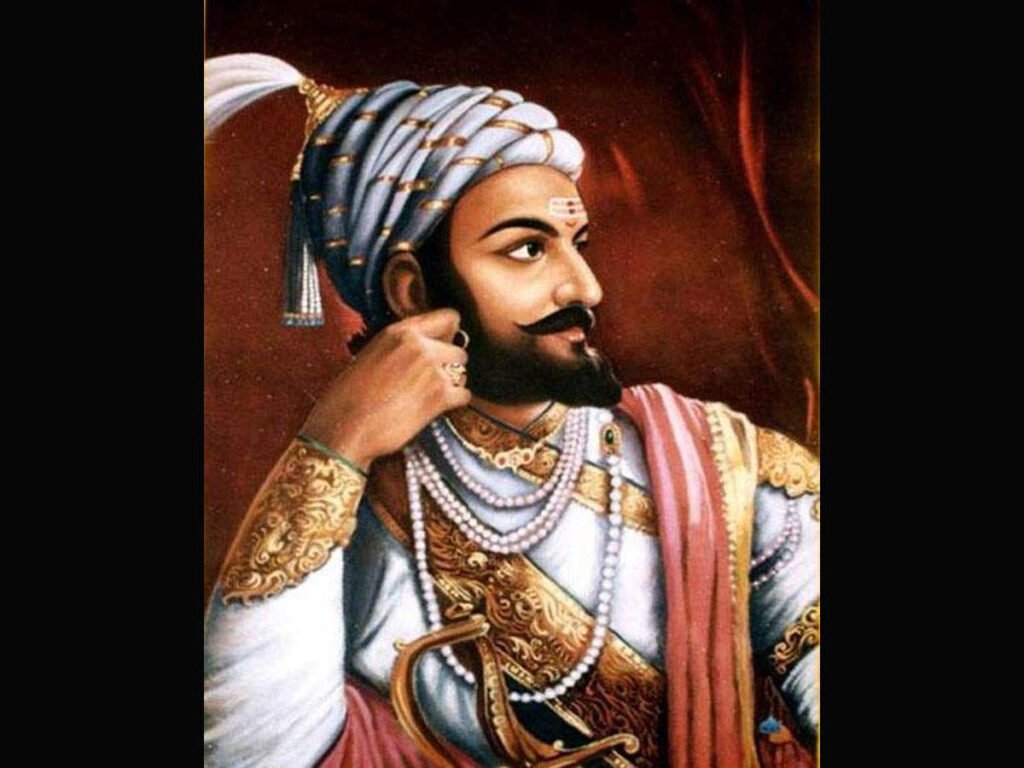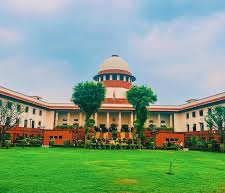
Chhatrapati Shivaji Maharaj, perhaps the greatest leader of his time—a visionary who created an empire that stretched across the Deccan and whose successors later built on that legacy, to extend the empire which over time covered practically the whole of India. A great leader, it is said leads by example. A greater leader inspires.
Shivaji was born on 19 February 1630 to Shahaji Bhonsle, a Maratha general who served the Deccan sultanates and Jijabai, the daughter of Lakhuji Jadhavrao of Sindhkhed, a descendant from a Yadav royal family of Devagiri. It was a time when the Mughal power were at its zenith over much of India and Muslim sultans held sway over the Deccan from Bijapur and Golconda. The Islamic rule was oppressive and had almost broken the spirit of the majority Hindu population. And thus from an early age itself, the flames of regaining ‘Hindavi Swaraj’ (self-rule of Indians) was flickering in the mind of young Shivaji. His mother was his mentor, who taught him Hindu values and about dharma and to fight injustice. She read to him the sacred texts of the Ramayana and Mahabharata and infused in him the pride of his people through stories of the brave Hindu Kings and Queens who had fought invasions for centuries. Thus young Shivaji grew up, imbued with a dream and a vision of creating a nation free from foreign rule.
Before the age of twenty he had captured four forts, without an army and without a battle. The word of his successes spread across neighbouring villages like wildfire, injecting hope and excitement among all. Soon Shivaji had an eager army of about three hundred village lads, who left behind their books and sickles to be with him. These young men had never held a weapon and were innocent to warfare, but then Shivaji was a man who could inspire men to have hope again and to fight for the impossible. And it is from such humble beginnings that he raised a great army and navy.
Behind the seemingly effortless campaigns and successes of Shivaji, lay the sharp mind of a strategist. He studied his enemies closely and tactically played them against each other as in the case of the Mughals and the Bijapur Sultanate. Shivaji’s vision was characterised by a deep understanding of the strengths and capabilities of his opponents along with a practical realisation of the limits of his own power at the time. In present-day parlance, his tactics could well be referred to as ‘asymmetric warfare’. He avoided battle on the plains where his forces would obviously be outnumbered and defeated, and took the battle to the hills where his limited troops stood chance to defeat a vastly superior force.
His ambush of Shaista Khan is the stuff that legends are made of! As the viceroy of the Deccan, Khan had arrived with a huge army to capture Shivaji. Displaying great personal courage and impeccable planning, Shivaji turned the tables on him. With a few hundred men he entered the courtyard of Khan’s palace through subterfuge, and raided the place. Shaista Khan’s son along with many of his soldiers were killed in the attack. He himself narrowly escaped after losing three of his fingers. This left the Khan in disgrace, and Shivaji’s legendary status was further enhanced.
Due to his sharp instincts, Shivaji was always two steps ahead of his enemies, which helped him neutralise foes like the Adil Shahi General, Afzal Khan. The story of his concealed armour and the bagh-nukh has thrilled and inspired children and adults alike for generations. But Shivaji was never led by bravado and sacrifice alone. At the root of each of his endeavours lay the grand vision of Hindavi Swaraj and to achieve that goal, he had the courage and self-confidence to retreat when the odds were not in his favour. In the larger scheme of things, it was more important to live to fight another day. Thus he accepted the Treaty of Purandhar, which cost him the loss of around 20 forts, leaving him with just a dozen. But that was better than losing them all, for a temporary setback was one he could recover from. And as history informs us, Shivaji won back all his forts.
An astute warrior, Shivaji knew the importance of speed and manoeuvre in battle. The guerrilla warfare of his highly disciplined infantry was menacing for his enemies. And his lightning fast cavalry was trained to ride for long hours and the men sustained themselves on two small meals a day. Perhaps that is why he could singlehandedly fight both the European enterprises and the Mughals. Alongside the battles, he continued with his diplomatic forays, signing treaties with even those who were sent to annihilate him. With each success, his power and influence grew.
As a young boy Shivaji had taken the scattered Maratha hill folk and turned them into a swift and agile army. As a King he established a state that set the foundation of the Grand Maratha Empire. For administration he set up an advisory council of ministers knows as the asht-pradhan. His revenue system was robust and made concessions for times of famine. His justice system was swift and sure, with no tolerance for crimes and in all this he remained an approachable King and a very loved one at that. In the words of J N Sarkar, ‘he welded the Marathas into a mighty nation’.
In a world that blindly celebrates conquerors who destroy foreign cultures and nations, Shivaji stands out for the love of his motherland… For he was a man resisting the rapacious destruction and invasion of his land, culture and people. When large parts of India were under the oppressive rule of Aurangzeb, the proud standard of the Maratha Empire flew in the Deccan and filled the hearts of millions with hope and pride. Campaign after campaign of the Mughal dynasty against Shivaji failed. Eventually Aurangzeb had to grudgingly acknowledge him as King and even sent him gifts on his coronation. Shivaji, the simple hill boy had battled the Europeans and the Mughals all alone. And with his foresight, bravery and love for swaraj, shared the idea of a self-rule for his beloved motherland.
On this, the 391st birth anniversary of Chhatrapati Shivaji Maharaj, we pay homage and our humble tribute to this great and true son of Bharat.






I salute .the Maharaja and greatvwarrier.I wish success to his true followers.
Very nice read, indeed. !Chatrapati Shivaji Maharaj is an idol for all the nation lovers. Very nice account of a brave, tactful King.